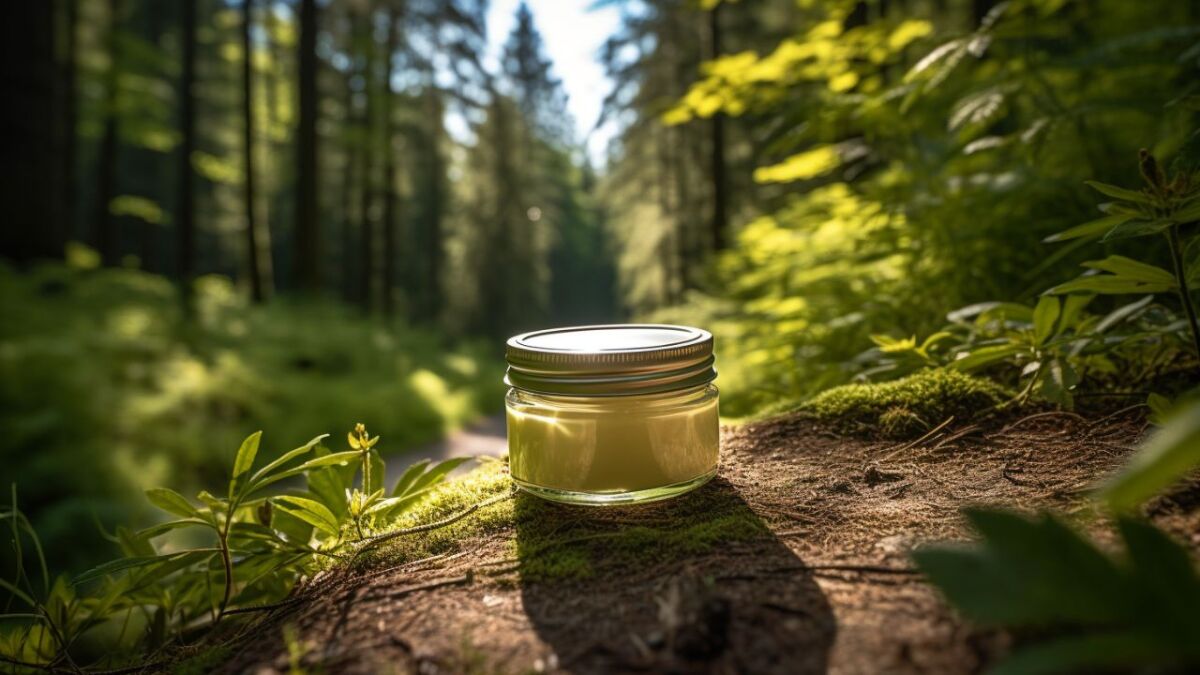
Wilderness and Skin Care: Healthy Skin Despite Adventure - How to Effectively Treat Skin Problems in the Wilderness
👉 The key facts from this guide
- You should protect yourself from the sun: Use sunscreen and wear protective clothing to prevent sunburn and skin aging.
- Protect yourself from wind and cold: Use moisturizing creams and ointments to protect your skin from drying out.
- Be careful with insects and animals: Use insect repellent and have antiallergic remedies ready.
- Take care of small cuts and scrapes: Have a first aid kit ready and clean wounds immediately.
- Follow a skincare routine: Cleanse, moisturize, and protect your skin even when you are outdoors.
- Pack the right products: Sunscreen, insect repellent, moisturizer, and a first aid kit are essential for your outdoor adventures.
You are planning your next big adventure in the wilderness and you are very excited.
There is only one problem: The concern for your skin.
Cuts, abrasions, insect bites, sunburn - all of this can really spoil the fun.
And it gets even worse if you don't know exactly how to protect yourself from it.
The thoughts of which cream to apply or how to properly care for a wound can be quite stressful.
But don't worry, I've got something for you.
In this guide, I will show you how to protect your skin so that you can fully focus on your adventure.
Discover the best solutions for your skin and enjoy your time outdoors without worries.
How do environmental factors affect skin health during outdoor activities?
Have you ever thought about what your skin goes through when you go on an outdoor adventure?
The wilderness offers incredible experiences and unforgettable views, but it also poses risks to your skin.
Let's take a look at how various environmental factors can impact skin health and what you can do about it.
1. Sun
The sun is probably your biggest "enemy" when it comes to outdoor activities.
Not only can it cause sunburn and heat stroke, but it can also promote skin aging and cancer.
Always protect yourself with a good sunscreen and wear sun hats and long-sleeved clothing whenever you can.
Matching this, I have a guide where I show why wearing long clothing in the summer is also sensible.
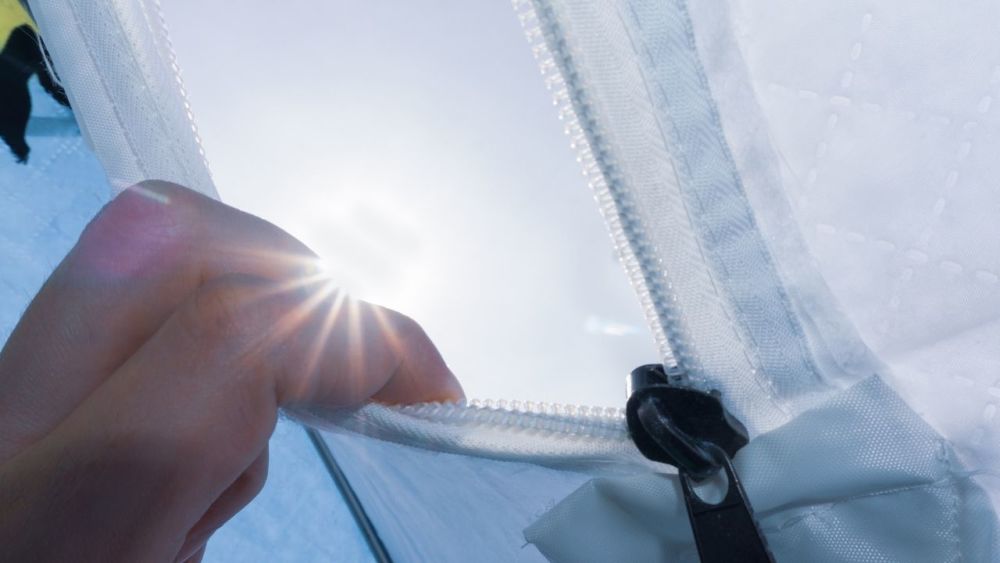
2. Wind
Even the wind can be harmful to your skin. It can dry out your skin and make it crack, especially on windy and cold days.
Try to avoid windy days or protect your skin with moisturizing creams, ointments, and lip balm.
3. Sand and Soil
Sand and soil can cause bacterial infections in small cuts and scratches on the skin.
So keep a first aid kit ready and always clean your skin as thoroughly as possible.
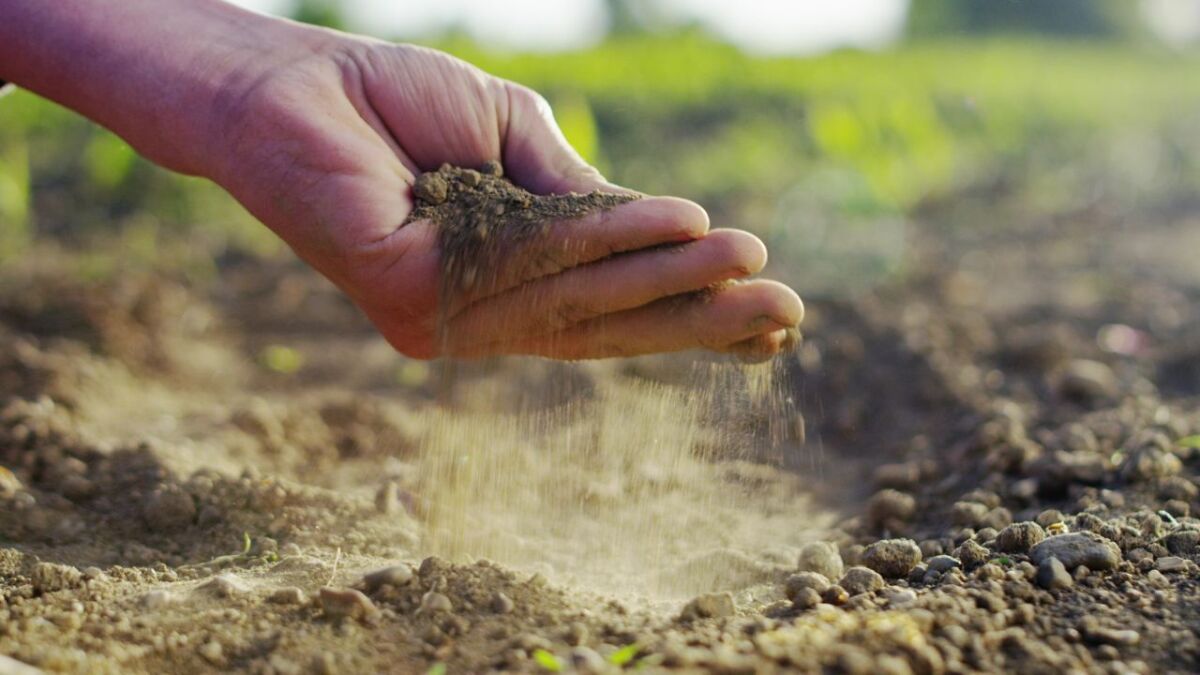
4. Cold
The cold can dry out your skin just as much as wind.
To prevent this, always keep your skin well moisturized with rich creams and lotions.
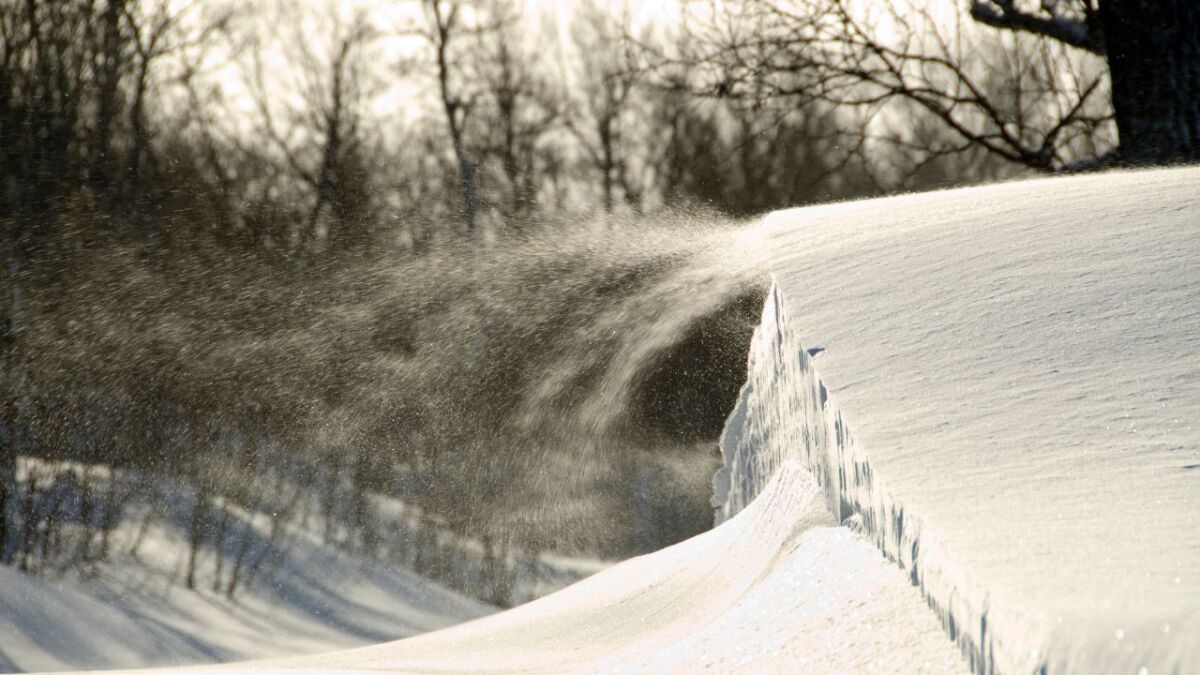
5. Start Claim
How often my hands hurt or are simply worn out - I can sing a song about it.
Especially when I work a lot with the knife and wood and my hands are not used to this strenuous work.
Then I realize in the evening that my hands need care.
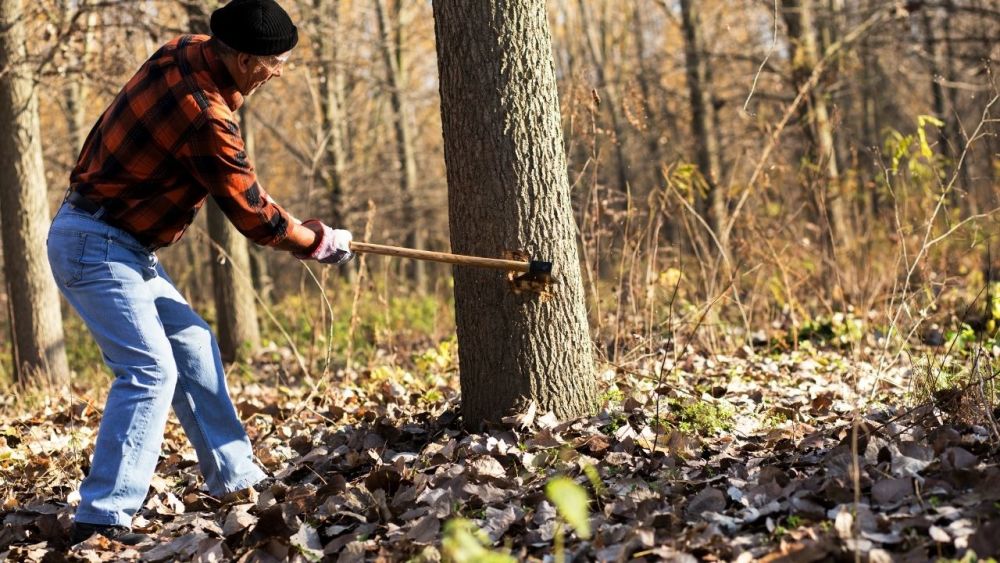
6. Insects and Animals
Insect bites can be painful and annoying, sometimes even dangerous if you react to allergens.
Protect yourself with effective insect repellents and always have a fast-acting antiallergic remedy on hand.
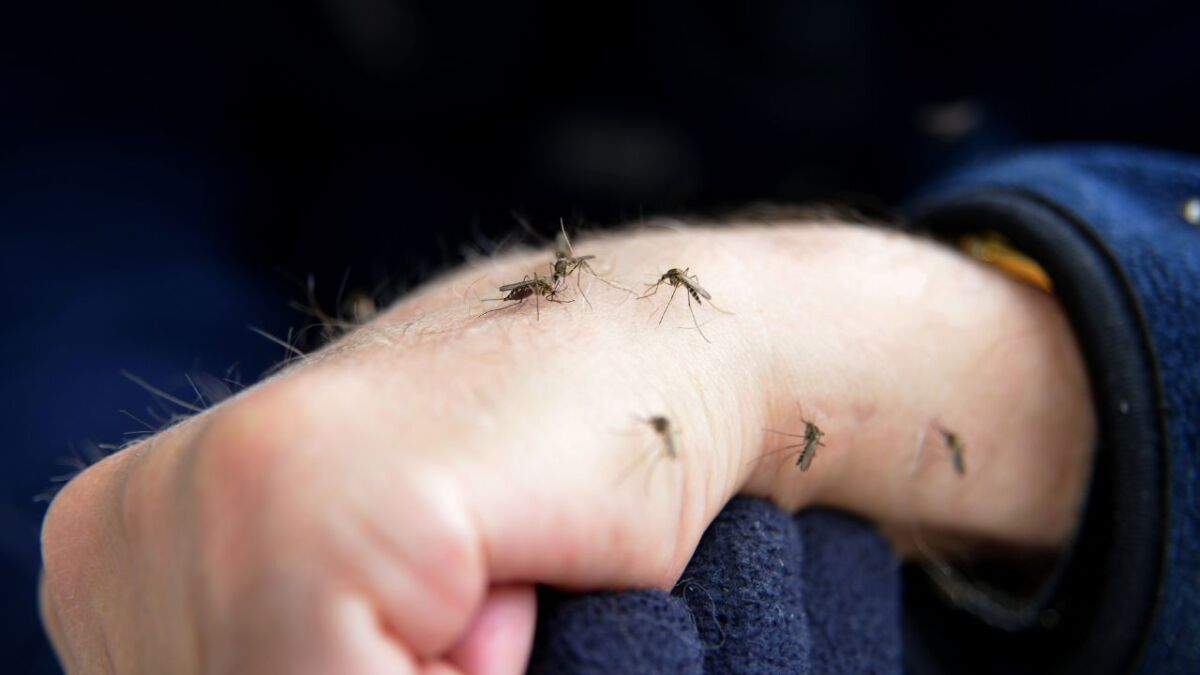
Before you plan your next outdoor trip, think about your skin health and be well-prepared.
Finally, you want to fully enjoy your time outdoors without having to worry about skin problems.
How can I protect my skin during outdoor activities?
Have I ever asked you how typically you think about your skin when you're out in the wilderness?
No, I'm not talking about beauty standards or anything like that.
It's more about the health of your skin - because yes, even when you're outside in the green, your skin can suffer.
From damage caused by strong sun, harsh wind or small scratches from plants, even insect bites are not excluded.
But don't worry, today I will share my best tips and advice with you on how to protect your skin when you are outdoors.
Sunscreen is a must
First, the sun. It is probably the biggest "enemy" for our skin.
Too much sun exposure can actually cause skin damage, premature aging, and in extreme cases, even skin cancer.
Therefore, whether it's winter or summer, sunscreen is always a must.
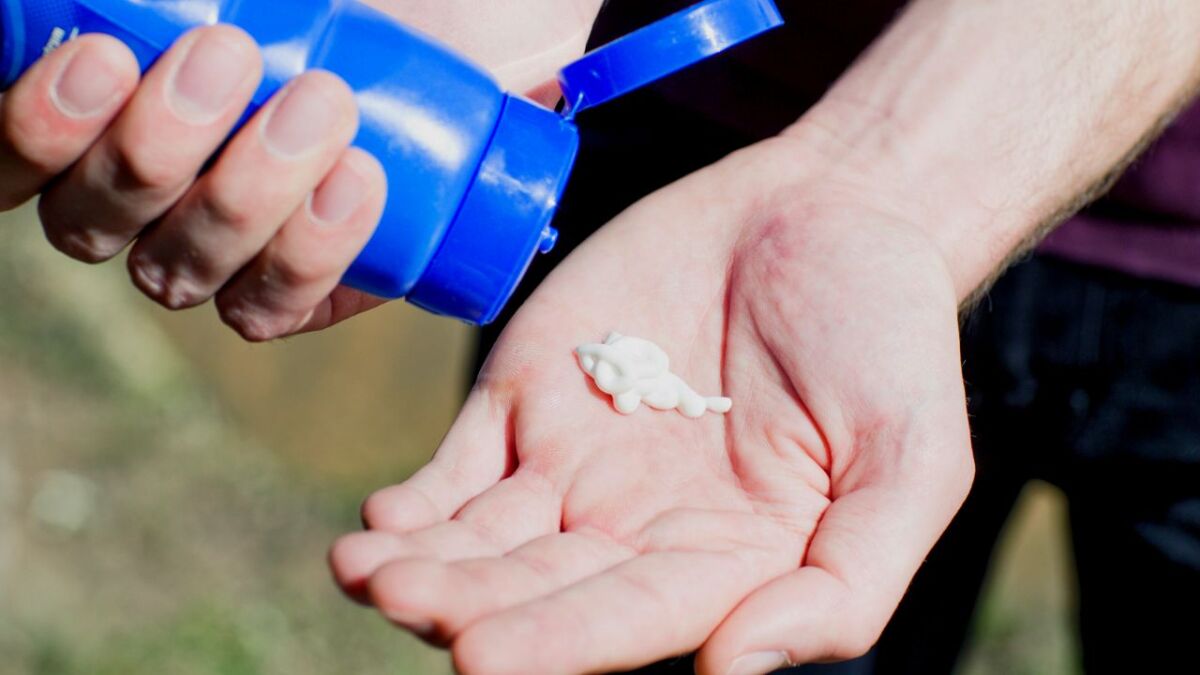
Protective clothing
Then, think about appropriate clothing that helps protect you against the elements (Here is my detailed guide to outdoor clothing).
A hat or bandana (Why is a hat important?) can protect your face from the sun, and long-sleeved shirts and pants made of lightweight material can protect your skin from annoying insects and scratchy plants.
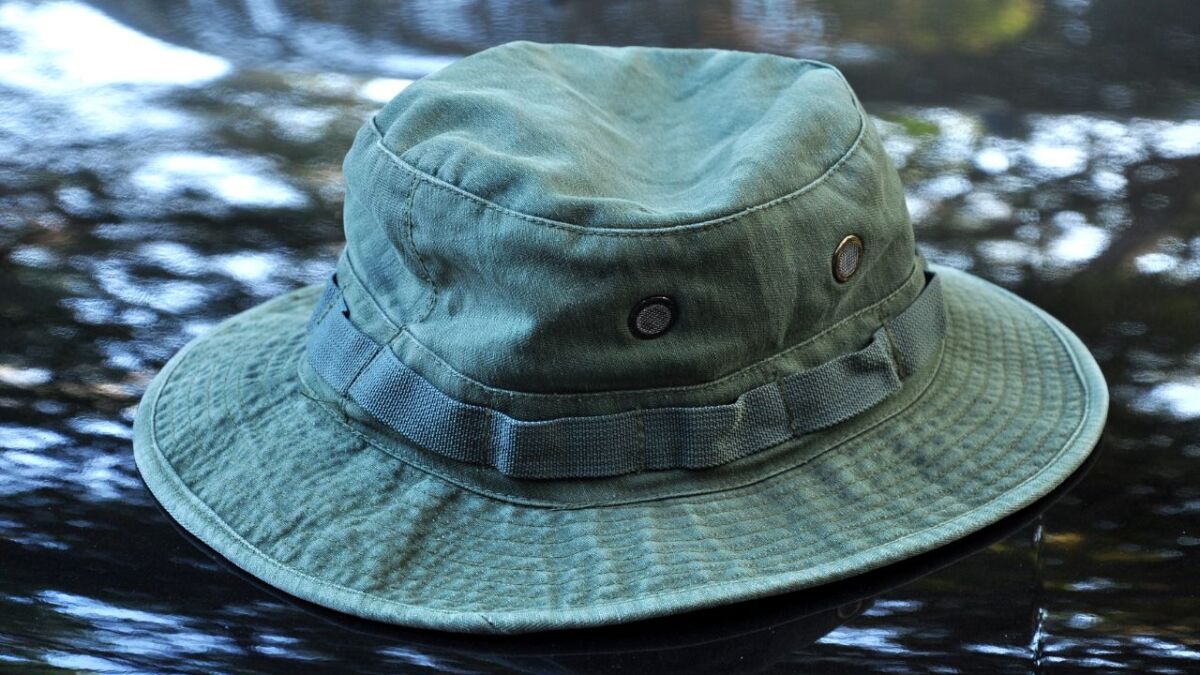
Moisturizer
Don't forget the moisturizer. Outdoor activities can dehydrate your skin a lot. Therefore, it is essential to have a good, not too heavy moisturizer with you on the go.
Clean and disinfect small wounds
Small cuts and abrasions can happen, no matter how careful you are.
Therefore, make sure to clean and disinfect small wounds immediately to prevent them from getting infected.
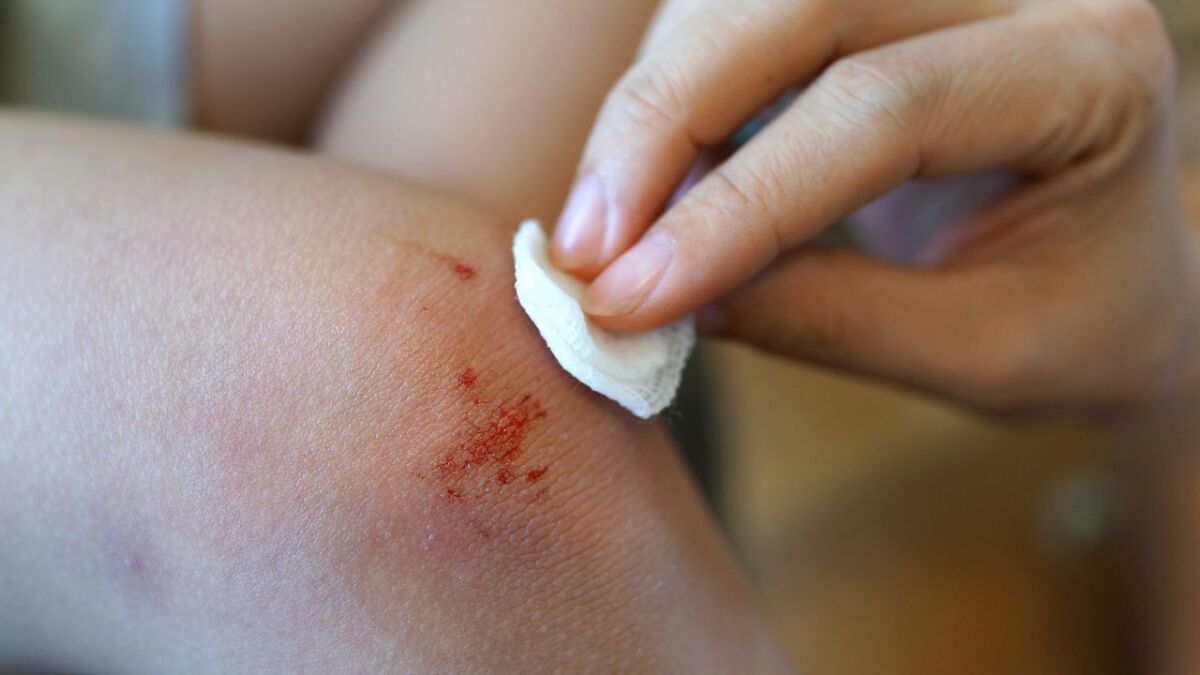
Insect protection
Insect bites are not only unpleasant, but they can also cause infections if not properly treated.
So, always use a good insect repellent that protects you from mosquitoes, flies, and ticks.
What is the best insect protection for the skin?
Well, annoyed by pesky insects when you're wandering through the woods and fields again?
Yes, I know that.
The nature is great, but mosquitoes, ticks and co? We can safely leave them at "home".
That is easier said than done.
But don't worry: Here are my best tips to avoid insect bites and protect your skin.
Insect repellent: Your new must-have
Yes, you heard right: Your best friend when it comes to insect protection is a good insect repellent.
I know that many people in the outdoor industry are trying to avoid insect repellents - nevertheless, I consider it important.
Just imagine, you actually get TBE or Lyme disease? These are serious illnesses.
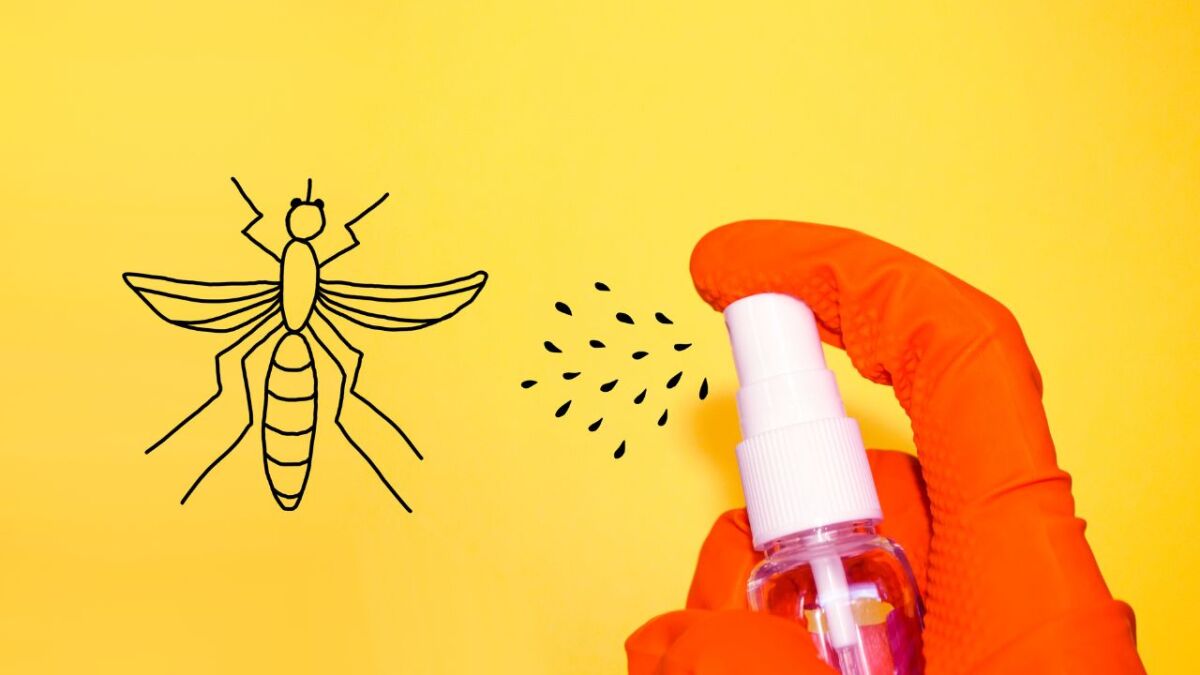
On some weekends, I had 11 (!) ticks attached to my body after one night. I would have been grateful for insect repellent.
Also: There are different ones on the market, some are based on chemical substances, others on natural ingredients.
What is best for you partly depends on your personal preferences. Just try out different products until you find the right one.
It's best to take a look at this guide on tick protection because there I'll show you which remedies really help against ticks (even if they're tough).
Clothing: Your Shield Against Insects
Long pants? Check. Long-sleeved shirt? Check.
Don't get me wrong, I love shorts and t-shirts just as much as you do, but when it comes to insect protection, they're not all that helpful.
Long clothing is your friend here.
But don't worry, it doesn't necessarily have to be the heavy jeans.
There are many lightweight and breathable fabrics that are also comfortable to wear in hot weather. So, better be safe than sorry!
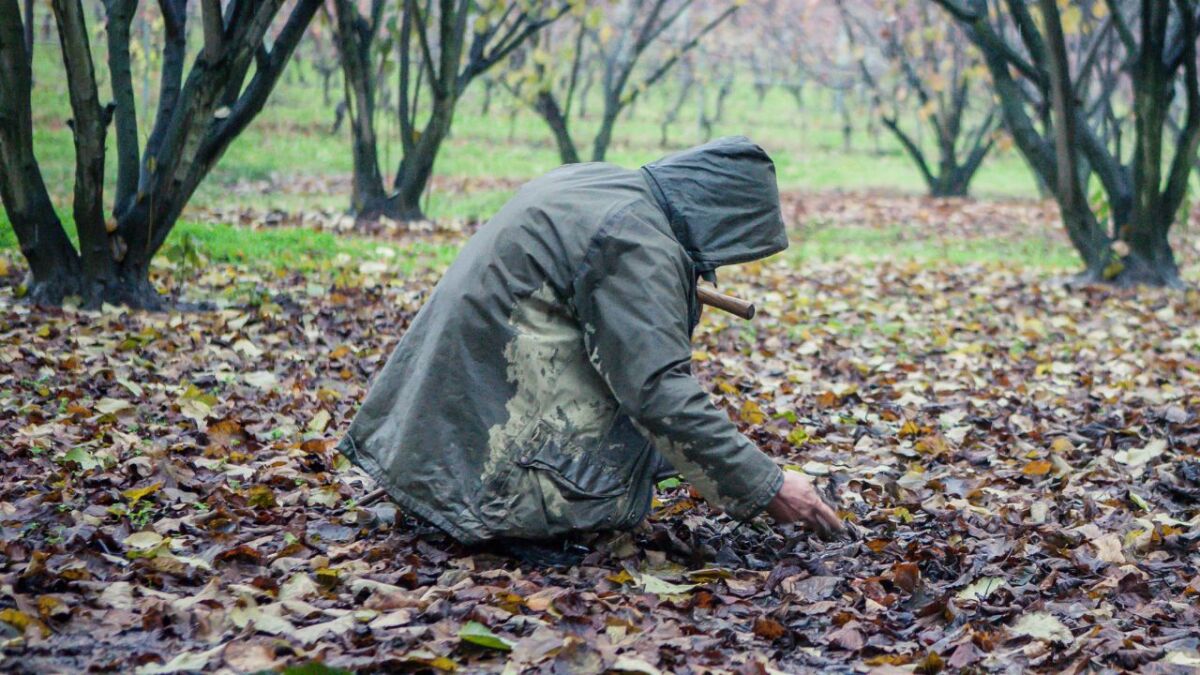
Mindfulness: Your Secret Weapon
Ultimately, mindfulness is always a good idea: Observe where you go, where you pause, and which plants are close to your tent.
Occasionally, it's just a matter of choosing the right place to avoid insect bites.
I have increased my mindfulness over time, among other things, through Wandering.
So, what tricks do you use to keep the pests at bay?
You are welcome to share your experiences with us in the comment section below and let's learn together.
How do I take care of small cuts and abrasions in the wilderness?
Now let's talk about how to take care of small cuts and scrapes while on the go in the wilderness.
Don't worry, it sounds more complicated than it is - and I'm here to help you.
Clean your wounds
First, yes, it's uncomfortable, but also important: You have to clean the wound.
I know you're thinking, oh, it's just a small scratch.
But in the wilderness there are many bacteria, and you don't want any of that in your bloodstream, do you?
So, take clear water - preferably even boiled or filtered - and clean the wound.
Don't forget to disinfect
Admittedly, it burns a little, but it is necessary, friends.
Use a disinfectant if you have one with you.
If not, don't get stressed.
Do you have strong alcohol with you, like a high-proof one to enjoy by the campfire?
The can also be used in this case.
Make sure to do this only for small cuts and scrapes, for large or deep wounds, medical assistance is needed.

A plaster or bandage at hand
A plaster or a piece of gauze can help protect the wound from further infection. Make sure that they are clean.
And remember to regularly change the bandage or plaster.
Pay attention to signs of inflammation
And last but not least, pay attention to signs of infection: redness, swelling, severe pain, fever - these are urgent signs to see a doctor.
Did you get this far? Great job!
You are now better prepared for minor skin injuries in the wilderness. Do you have any other tips? Share them with us.
How to prevent and treat sunburn in the wilderness?
Sunburn is not only uncomfortable and painful, it can also damage your skin in the long term and even cause skin cancer.
Therefore, it is super important to know how to prevent and treat it in the wilderness.
Prevention is the key
- Sun protection is a must: Always use a sunscreen with a high sun protection factor (SPF) that blocks both UVA and UVB rays. Remember to reapply it every two to three hours, especially if you are sweating or in the water.
- Hat and clothing: Protective clothing and a hat are essential to avoid direct sun exposure on the head and neck.
- Seek shade: Try to find a shady spot during the midday hours when the sun is strongest.
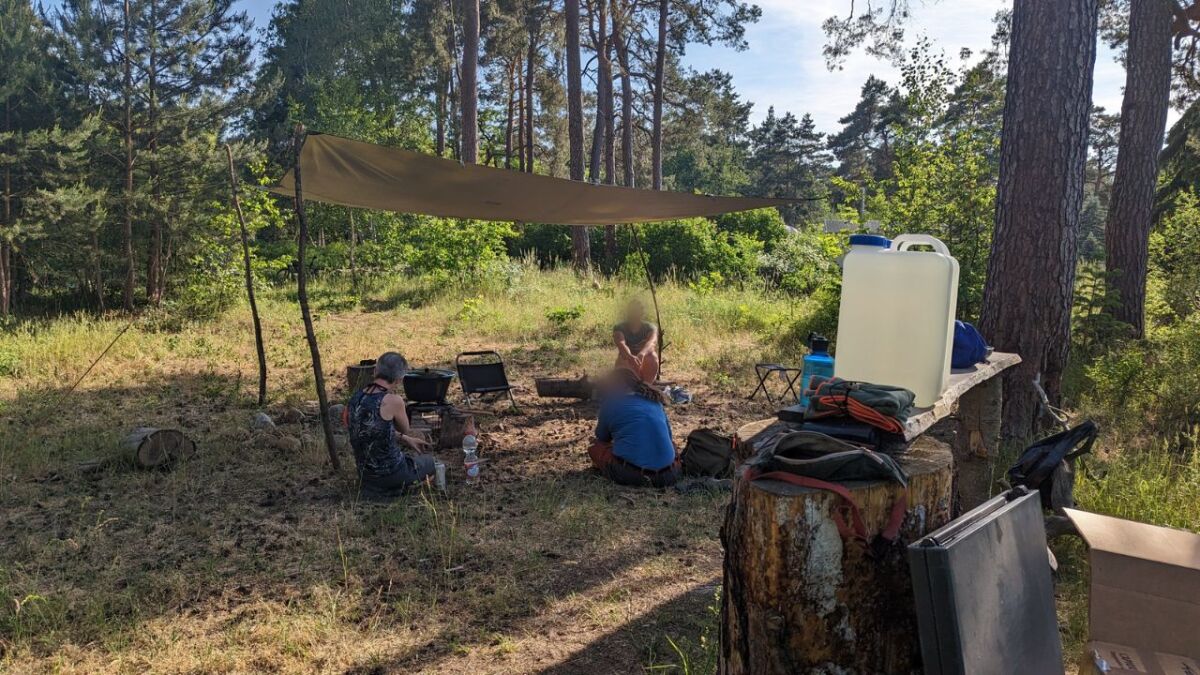
Treatment of Sunburn
- Cool down the skin: If the sunburn lasts longer than 15 minutes, cool down the burned skin as quickly as possible. You can use cold water or cold damp towels.
- Hydrate your skin: Use aloe vera gel or moisturizing cream to soothe the skin and protect it from further drying out.
- Drink plenty of water: Sunburn can dehydrate you and lead to dehydration. Prevent this by drinking extra water.
- Seek medical help if necessary: Is you have severe or extensive sunburn, blisters, fever, chills, or severe nausea, you should definitely see a doctor.
If you are prone to sun allergies, it is advisable to bring along special creams for the treatment of sun allergies.
In the online pharmacy, you will find a selection of sun allergy creams that can help you avoid unpleasant reactions to the sun.
For those who have specific concerns about sun allergies, there are specialized products that can help manage this condition.
Refer to this selection of sun allergy products to find the product that is best suited for you.
So let's be wise and avoid sunburn wherever and whenever we can. Then remember, we are here to enjoy the wilderness, not to get burned by it.
Which skincare routine is best suited for adventurers?
Even if you are more concerned with hiking routes, the perfect equipment and the most delicious camping food, skincare should not be neglected.
Why? Because your skin also does an impressive job on your adventures and deserves a little attention. So let's get into skincare!
Step 1: Cleaning
Being out in nature often means getting dirty.
And while that's definitely part of the fun, it's important to remove the dirt from your skin at the end of the day.
Use a gentle cleansing product for this. Maybe you could try biodegradable wipes or cleansing foams?
Step 2: Moisturizing
A good moisturizer keeps your skin healthy and helps protect it from external influences.
Especially after a long day in the sun, your skin needs an extra dose of moisture. Therefore, choose a moisturizer that is specifically designed for the face and one for the body.
Step 3: Bold
Outdoor adventures, especially when they involve hands-on activities like Bushcraft projects or leather production, can be really tough on the skin.
I remember looking at my sore, tired hands in the evening after a day full of manual work on my bushcraft projects.
This is the moment where a good ointment comes into play, and I often found refuge in homemade ointments like resin ointment or poplar ointment (which we make in the Wildimpuls Program).
These rich, natural creams have worked wonders by forming a protective barrier and locking in moisture.
So I could start working again the next day, feeling fresh, without my skin suffering from my adventures.
Whether you're hiking through windy heights or sitting by the campfire, don't forget to pack some lotion to keep your skin in top shape for the next adventure.
Just like I did, you can also make these ointments yourself or find them in stores. They will be a valuable companion on your outdoor adventures.
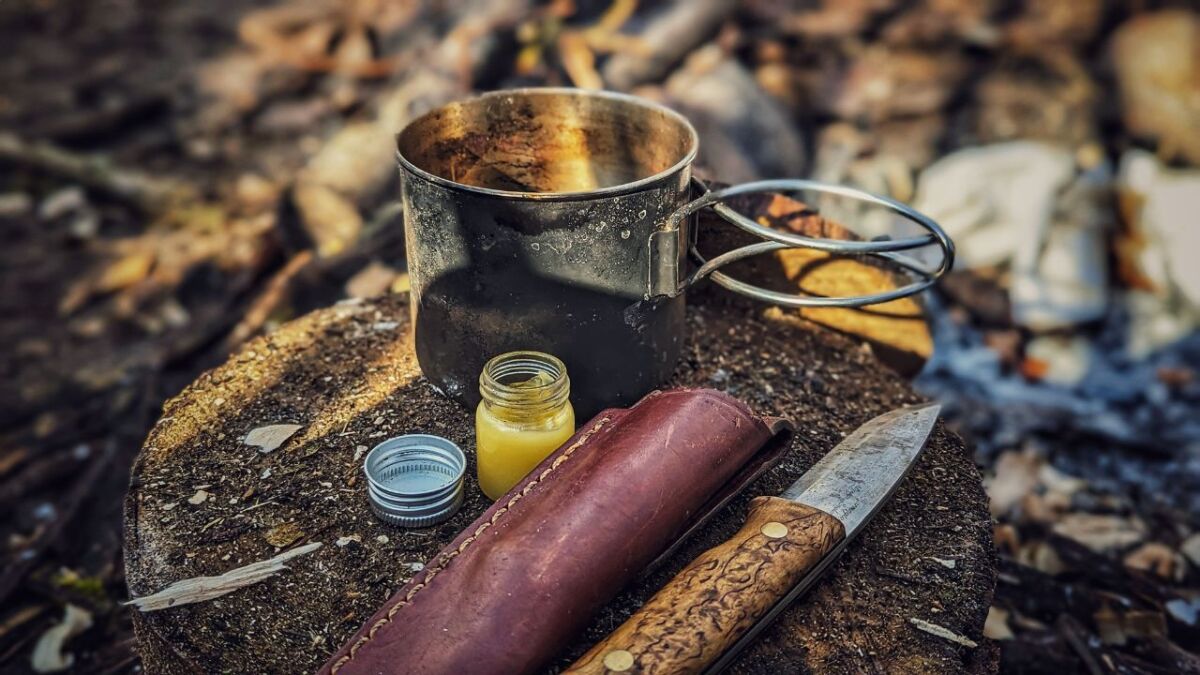
Step 4: Sun Protection
Even if it's cloudy, it's better to always wear sunscreen.
In higher altitudes, the sun can be quite strong, so always choose an SPF of at least 30. And remember to reapply your sunscreen regularly if you're spending the whole day outside.
This is my adventurer skincare routine in four simple steps. Have you already gained experience with skincare on the go?
Which skincare products should I take on trekking or camping trips?
Are you already packing your bag for the next trekking or camping trip?
Let's go through together which skincare products absolutely need to be on your packing list.
- Sunscreen: Let me guess, you've already guessed that, haven't you? Sunscreen is an absolute must. Whether it's sunny or cloudy, sunscreen should always be on your face.
- Insect repellent: Mosquitoes, flies, ticks… all these little pests can have your skin for breakfast. But not with us! A good insect repellent keeps them away.
- Hydrocortisone cream: A miracle cure for itching and skin irritations. Whether caused by insect bites or plants, hydrocortisone cream can help relieve the itch.
- Facial and body moisturizer: The wilderness can dry out your skin. Whether from the sun, wind, or water - motivate your skin to regenerate with a good moisturizer.
- Lip balm: Your lips are particularly prone to dryness and can quickly become chapped. Keep them smooth and protected with a moisturizing lip balm.
- Hand cream: Let's not forget about the hands, they are often the most stressed during outdoor activities. A good hand cream helps heal cracked skin and keeps the hands well hydrated.
- First aid kit: Includes disinfectant and bandages for minor cuts and scrapes. I always put mine together myself and here you will find the appropriate guide.
Remember that while you venture into the wilderness, it doesn't mean you have to neglect skincare.
On the contrary, it is even more important to ensure that your skin stays healthy during your adventure.
So pack your skincare products and enjoy your time outdoors.
No desire for products from the market? - Natural products are often an insider tip
Natural skincare products
So, you and I, we know that skincare in the wilderness can be a real challenge, right?
But let me tell you why natural products can work wonders here as well.
You are gentle to your skin and the environment - a true win-win. No chemicals that irritate your skin or harm nature.
Instead, think of things like Aloe Vera, coconut oil, or homemade ointments with resins and herbs from the forest.

These little heroes can provide exactly what your skin needs, without any unnecessary frills.
Have you ever made a salve from pine resin or used coconut oil as a moisturizer?
Believe me, this could become your new favorite ritual the next time you camp under the open sky.
Natural remedies for wound treatment
Let's talk about something that can happen to each of us at some point: small cuts and scrapes.
But don't worry, my friend, the forests also have something to offer us here.
Imagine you are hiking on a trail in the Black Forest and slip, and bam - a small cut on your hand. What now?
Here natural remedies come into play.
How about rib wort plantain?
This widespread plant in our forests can be applied directly to the wound to clean and heal it.

Or have you ever heard of the power of the jaw?
Pine resin can be processed into a soothing ointment that works wonders for minor injuries.
And the best part? These natural helpers are right outside your doorstep, in the forest around the corner, waiting to be discovered.
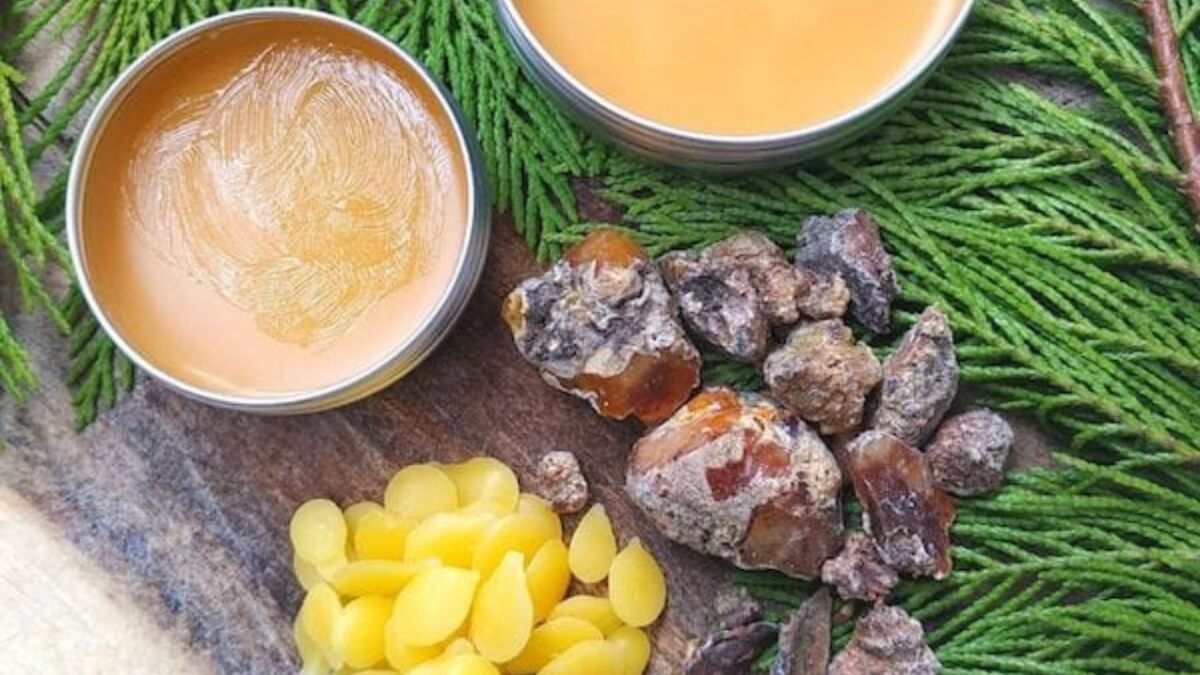
It's as if the local forests themselves offer you a little first aid kit.
You just need to know where to look.
So, the next time something goes wrong, stay cool and remember: Nature has got your back.
Also take a look at this guide, where I have listed many medicinal herbs for the home pharmacy and for on the go.
Natural Insect Repellents
Oh, these annoying mosquitoes and ticks.
If you're like me, then you know the feeling when you want to relax in the wilderness and these little pests just won't stop bothering you.
But hey, we won't let a few insects stop us, right?
Natural insect repellents are the key, and you will be surprised how easy and effective they can be.
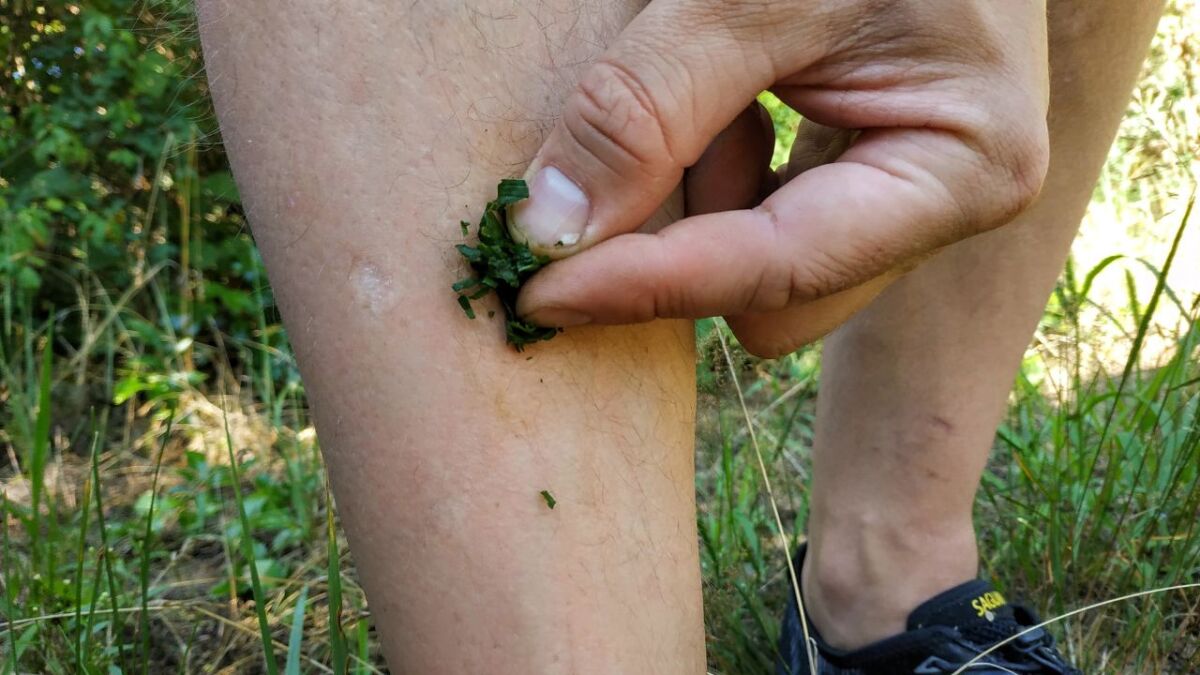
Have you ever tried lemon eucalyptus oil? A few drops on the skin, and not only do you smell fantastic, but you also keep the mosquitoes at bay. Some swear by it.
Or how about garlic? Yes, you heard right, garlic! A little in your food, and you'll be less attractive to those little pests.
The best thing about natural insect repellents is that you don't have to deal with chemical sprays or lotions that could irritate your skin.


Author of the guide
Martin Gebhardt
Hey, I'm Martin. On my blog, you will learn the basics and numerous details about living in the wild. I think survival, bushcraft and the good life in nature are the keys to happiness. Find me here on Instagram or on YouTube. You can find more about my mission on the About Me page.
Was this guide helpful?
16 people found this guide helpful.
5.00 out of 5 points (16 Ratings)
Comments (0)
This post may contain affiliate links. So if you click on the links and make a purchase, I will receive a small commission at no additional cost to you. Click here, to learn more about it.


